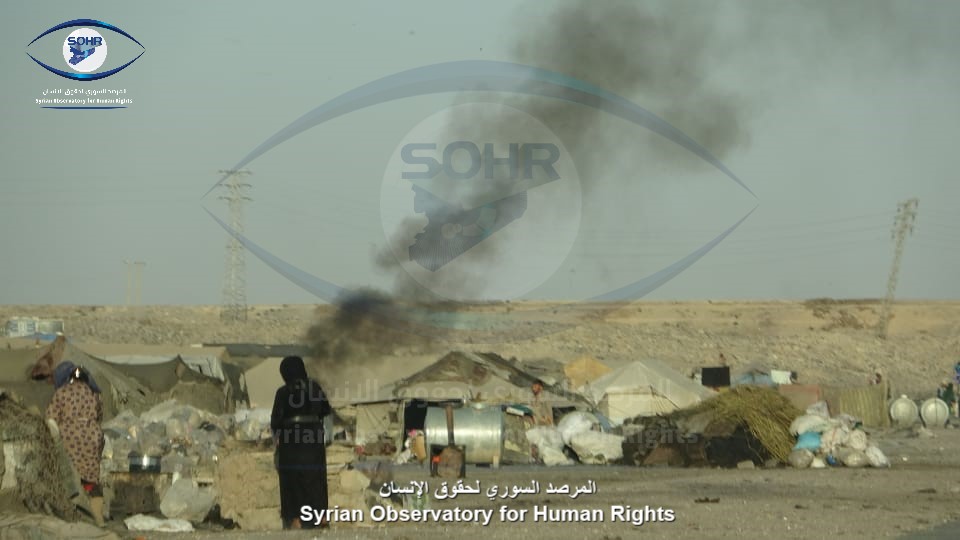For one US dollar a day | Women collect scrap and used objects in areas nearby Al-Raqqah camps, disregarding alarming outbreak of cholera
Syria’s war, which has been raging for over 11 years, has triggered two grand waves of mass exodus; the first was manifested in the immigration of a large number of Syrians to Lebanon, Iraq and Europe, while the second was the displacement of Syrians to north Syria region. The unprecedented large number of displaced people in north-east and north-west Syria, which has been estimated to be millions, has shocked the international community and humanitarian and human rights organisations which have failed so far to provide needed support and deliver sufficient aid to refugee camps in these areas.
SOHR activists in Al-Raqqah have reported that families from Deir Ezzor, Aleppo, Idlib, Homs and Damascus have moved to 58 makeshift camps in the province since 2017. Over 16,165 families, comprising a large number of women, children and elderly people, live below the poverty line and struggle with dreadful living conditions, tragic humanitarian situation and deteriorating health and medical care, especially in the camps of Sahlat Al-Banat and Al-Sawafi and the resettlement centre in Khadija Al-Kobra school.
Speaking to SOHR, a 40-year-old woman known as “Um Nariman” from Al-Zaghir area in Deir Ezzor countryside, who is the mother of two girls and works in a workshop for collecting scrap and used objects, says that she collects scrap and used plastic and metal objects in a landfill near Sahlat Al-Banat camp from 08:00 am to 05:00 pm every day for a low daily wage of 5,000 SYP (a bit more than one US dollar).
With tears in her eyes, “Um Nariman” says, “the workshop’s owner enslaves and oppresses us, where he forces us to sort out garbage and burn it to extract metal and plastic. I leave my two-year and three-year old daughters with me neighbour in her tent to take care of them until I return from work. The ‘Komin’ (local committees) have deprived us of monthly support which I had received, after havening cancelled my card. Several women in the camp and I have frequented to the Komin’s headquarters, appealing them to resume the delivery of monthly aid support, but they told us that they have nothing to do. My husband is a shepherd, and he remains away from home for three or four months. The camp’s women and I found ourselves obligated to work in workshops for collecting used metal and plastic at landfills to earn our living.”
SOHR sources in Al-Raqqah have confirmed that most of women and children in Sahlat Al-Banat camp work on workshops for collecting scrap and get low wages, despite the deteriorating health situation and the alarming outbreak of cholera due to water contamination and the few sources of clean drinking water in the camp.









